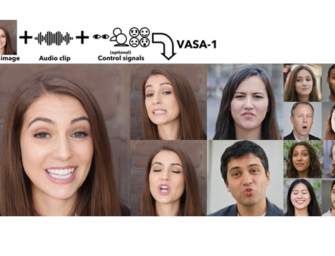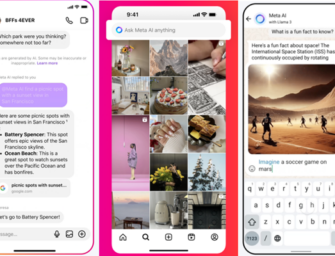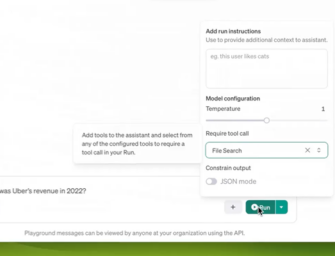IBM’s Watson for Drug Discovery Program No Longer Taking New Clients

Image Credit: IBM
IBM announced recently that it is discontinuing the development and sales of its Watson for Drug Discovery product. Poor financial performance is to blame for the discontinuation, IBM says. The company will continue to support existing clients, but will not be taking any new clients. In an emailed statement to Medical News Journal Stat, IBM spokesperson Edward Barbini wrote
We are not discontinuing our Watson for Drug Discovery offering, and we remain committed to its continued success for our clients currently using the technology. We are focusing our resources within Watson Health to double down on the adjacent field of clinical development where we see an even greater market need for our data and AI capabilities.
The move is indicative of issues within IBM’s health division and reminiscent of June 2018, when IBM scaled back part of Watson Health dedicated to helping hospitals manage certain contracts citing weak demand for the service.
Drug Discovery Was Not Able to Deliver – and Neither has the Whole of Watson’s Healthcare Division
The Watson for Drug Discovery service is used by pharmaceutical companies to apply artificial intelligence to the development of new medicines. IBM’s website states the Drug Discovery program allows clients to explore entities, receive post-translational modification summaries, find co-occurrence, predict relationships, explore chemicals and networks, and conduct predictive analysis. The Drug Discovery program is a part of Watson’s healthcare division, which launched in 2011 in collaboration with Nuance after Watson easily won Jeopardy.
Initially, the idea was that Watson would be helpful in healthcare due to its ability to store and access databases of medical knowledge much more effectively than a human. However, that was eight years ago, and reportedly doctors are fed up with using Watson. Robert Wachter, chair of the department of medicine at the University of California, San Francisco, and author of the 2015 book The Digital Doctor: Hope, Hype, and Harm at the Dawn of Medicine’s Computer Age (McGraw-Hill) commented in early April that doctors are losing faith in IBM’s Watson because
They came in with marketing first, product second, and everybody got excited. Then the rubber hit the road. This is an incredibly hard set of problems, and IBM, by being the first out, has demonstrated that for everyone else.
Undelivered hype seems to be the phrase to best describe the situation. Although IBM’s technology has been proven to be incredibly powerful, it does not seem to be relevant in a clinical setting. Martin Kohn, a former IBM medical scientist, commented in an IEEE Spectrum piece,
Merely proving that you have powerful technology is not sufficient. Prove to me that it will actually do something useful – that it will make my life better, and my patients’ lives better.
A Lesson For Future AI Use in Healthcare – Be Realistic
Watson’s Healthcare venture that seems to have gotten the most attention for not delivering on its promise is Watson for Oncology. It made headlines for offering potentially dangerous medical advice based on hypothetical patient data. Through the use of Watson for Oncology over time, researchers have found that Watson is not able to independently extract insights from breaking news in medical literature, it can’t mine information from patient’s electronic health records as expected, and that it cannot compare a new patient with prior cancer patients in order to find hidden patterns. Those are all abilities IBM heavily advertised with Watson.
And the biggest reason that Watson is unable to complete these tasks: healthcare is too messy. Patient records are not recorded cleanly, with confusing handwriting and ambiguity. Watson is unable to read articles as a physician would and is unable to pick up on the important information. Watson’s thinking is based entirely on statistics, able to gather main outcomes, but that is not how doctors work. Several studies have even been conducted comparing Watson for Oncology’s cancer treatment recommendations to those of hospital oncologists:

Source: IEEE Spectrum
The data in the charts above was collected by IEEE Spectrum from the Journal of Clinical Oncology 2017, Cancer Research 2017, and JCO Clinical Cancer Informatics 2018.
Watson’s Health Venture May Not Have Been Very Fruitful, But AI Has Proven It’s Use in Healthcare
This does not mean that there is no way for AI to be helpful in healthcare today, however it does underscore the point that healthcare is a conservative field slow to adopt new technologies – for good reason. A few examples where AI is actually useful in medicine are with robotic surgery, image analysis, genetic analysis, pathology, clinical-decision support, virtual nursing, medical administration, and mental health. The bottom line: IBM’s goals for Watson’s use in healthcare were pretty unrealistic in 2011, and are still pretty unrealistic today, hence the reason for the Drug Discovery program’s halt on new clients.
IBM Introduces Watson Assistant, A Customizable Voice Assistant for the Enterprise








